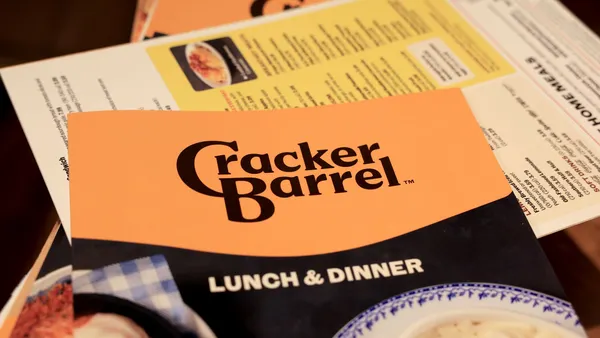Dive Brief:
- Investor Phyllis Gianotti has sued McDonald's, alleging the chain breached its fiduciary duty by failing to curb incidents of racial discrimination, sexual harassment and other misconduct, according to a complaint made public Wednesday. Gianotti blames law firm Morgan Lewis & Bockius for creating "an information vacuum" of "problem areas McDonald's has long recognized internally and externally."
- Gianotti argues that Morgan Lewis rushed its initial investigation, which concluded after eight days, of then-CEO Steve Easterbrook's inappropriate relationship with an employee. The suit also references previous complaints of racial discrimination and declines in the percent of Black executives at McDonald's.
- This suit isn't the only legal blowback the chain has faced in the wake of Easterbrook's ouster. In November 2019, New York City's comptroller and institutional investors wrote a letter to McDonald's questioning why the chain allowed Easterbrook to retain benefits when he was terminated with cause. In April, a group of Teamsters funds sued the chain for paying off Easterbrook to quickly resolve the scandal.
Dive Insight:
Gianotti argues that because McDonald's passed all reports through its CEO, this position was granted too much power and too little oversight when it came to enterprise risk management. Workplace misconduct experts agree that historically there haven't been enough guardrails at the company to mitigate bad behavior, nor follow through to penalize employees who behaved badly.
"The Board has acted in accordance with McDonald's values and will continue to do so, supporting the Company’s efforts to ensure fair opportunity for employees, franchisees and suppliers," Ron Olson, legal counsel for McDonald's and the named directors in the suit, said in a statement.
Though McDonald's has made efforts to improve its sexual harassment policies and representation and support of diverse employees, lawsuits centered on deep culture problems continue to pepper the Golden Arches. This latest complaint is a smorgasbord of accusations that have been brought against the chain in recent years, but perhaps the most interesting aspect of the complaint is that it still hinges on the Easterbrook scandal — suggesting his firing in 2019 could continue to be a dark spot on the company's reputation.
McDonald's is still litigating a case it filed against Easterbrook last summer in an attempt to claw back the 26 weeks of severance benefits and stock options he was awarded in a separation agreement.
The chain claimed Easterbrook lied during its internal probe into his relationship with an employee, and claimed it discovered he had three additional sexual relationships with subordinates before his firing. The company alleges that Easterbrook attempted to destroy record of these relationship, and that he "approved an extraordinary stock grant, worth hundreds of thousands of dollars" to one of the employees he was involved with.
Easterbrook responded to the claim with a lawsuit of his own, arguing that McDonald's was aware of all of his relationships with employees when the company granted his exit package and that it had access to his email account during the chain's initial investigation, which contained evidence of this conduct.
Even if McDonald's is eventually able to reclaim Easterbrook's severance package, which is estimated to be worth around $56 million, the chain's handling of the situation could continue to haunt it — especially with investors like Gianotti crying foul over systematic inadequacies when it comes to risk management, not just the Easterbrook scandal itself.
Editor's note: This article has been updated to include a statement from McDonald's.












